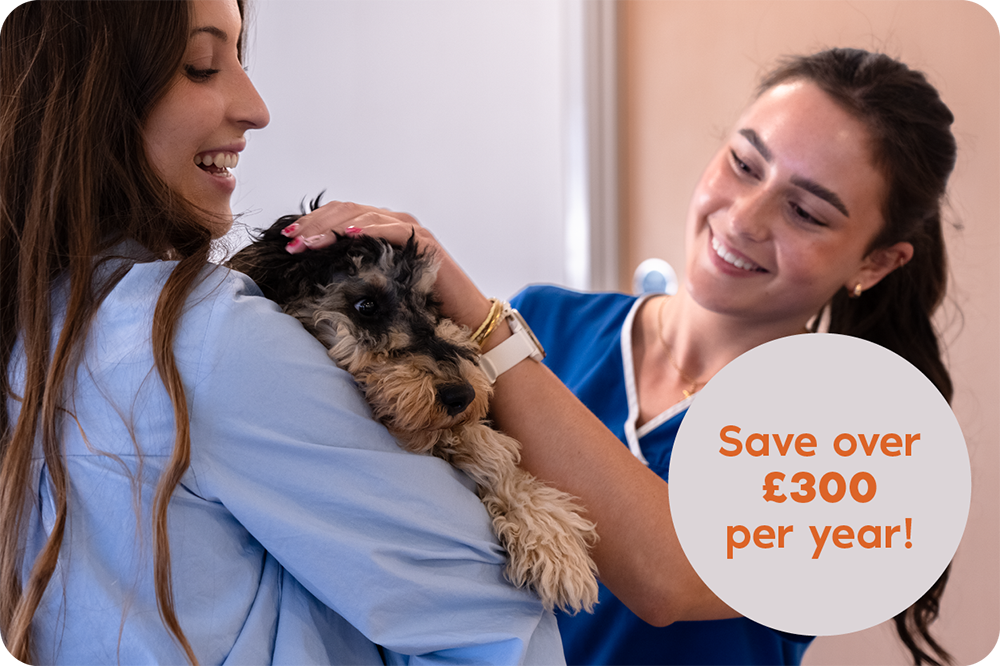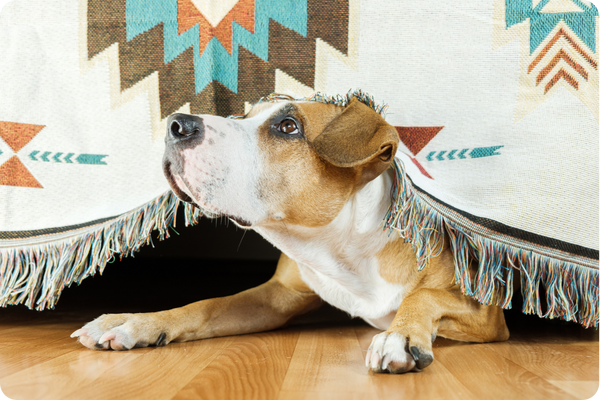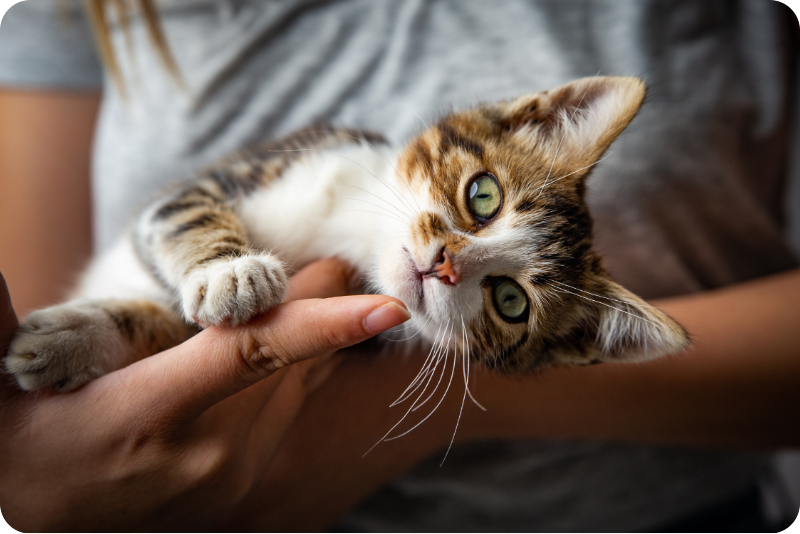For many of us, fireworks are a highlight of celebrations like Bonfire Night, New Year’s Eve, or Diwali. But for our furry friends, the loud bangs, flashes of light, and unpredictable noises can be very stressful. If you’re a pet owner, preparing in advance can make all the difference to your pet’s wellbeing.
Here are some practical tips on how to calm an anxious pet during firework season.
Why fireworks scare pets
The sudden loud noises and bright flashes can trigger fear and anxiety in dogs, cats, and even smaller pets, such as hamsters or birds. Signs of stress may include:
- Trembling
- Hiding
- Panting
- Pacing
- Destructive behaviour.
Some pets may also refuse food, vocalise more than usual, or attempt to escape, which can put them at risk. Recognising these signs early is key to protecting your pet’s mental and physical wellbeing – as well as keeping them safely indoors.
Top tips for calming an anxious pet
1. Create a Safe Space
Prepare a quiet, comfortable area in your home where your pet can retreat. Use blankets, their favourite toys and bedding to make it cosy. For cats, provide safe hiding spots like boxes or covered beds. Try introducing the safe space a few days in advance so your pet becomes familiar with it before fireworks begin.
2. Use Background Noise
Switch on the TV or radio, or play calming music to help mask the sound of fireworks. Consistent background noise can reduce your pet’s focus on the frightening sounds outside. There are even playlists and apps designed specifically to soothe pets during stressful events.
3. Try Calming Aids
Consider using pheromone or herbal diffusers, sprays or calming collars to help you pet stay calm. Weighted blankets and specially designed anxiety wraps can also provide gentle pressure that reassures some pets. Speak to your vet about whether any supplements or medications may help reduce your pet’s anxiety.
4. Keep Pets Indoors
Always keep anxious pets inside during firework displays. Close windows and curtains to block flashes of light and reduce noise. Walk your dog before it gets dark so that they’re exercised and less likely to need the toilet during fireworks, and make sure their collar and microchip details are up to date in case they get spooked and escape.
Close your cat flap and keep a litter tray indoors for your cat and don’t forget to bring small pets like rabbits or guinea pigs indoors or cover their outdoor hutches with blankets.
5. Stay Calm and Reassuring
Pets pick up on their owners’ emotions. Staying relaxed and offering gentle reassurance is often calming to an anxious pet. Always avoid punishing anxious behaviour – instead, try for positive reinforcement with treats or play If your pet seeks comfort, give it freely. Some will prefer cuddles, while others – especially cats – may want space. Provide high-up spaces or hiding places to make them feel more secure. Respecting their choice helps to build trust.
Get Extra Help If You Need It
If you’ve tried these steps with your pet in the past and you can still see signs of anxiety in your dog or cat, then it’s time for a trip to the vet. If all looks well on a check-up, then your vet can speak to you about options for medication to help relieve your pet’s stress in the short term, and point you towards longer-term ways to try and help them deal with loud noises more easily.
Don’t Forget Small Pets
It’s not only cats and dogs that need support during firework season. Small pets can be just as vulnerable, and their stress may be less obvious but even more important to manage.
Rabbits and guinea pigs have sensitive hearing and may panic or even injure themselves by running around. Bring them inside or cover their outdoor enclosures.
Hamsters, gerbils, and mice can become restless and chew excessively if stressed. Move their cages to a quieter part of the house.
Birds may flap around in panic. Cover their cage partially and keep them in a calm, dimly lit room.
Ferrets may pace or hide. Providing tunnels or bedding to burrow in can make them feel more secure.
Even reptiles can respond to vibrations from loud bangs. Keep them in a stable, quiet environment away from the loud noises as much as possible.
Remember: any pet with sharp hearing, especially prey species, can be affected by fireworks, so always prepare ahead of time.
Final Thoughts
Firework season and anxious pets don’t always go hand in hand, but with preparation, patience and the right techniques, you can greatly reduce your pet’s stress. From creating a safe space to using calming aids and keeping pets indoors, small steps make a big difference. Every animal is unique, so finding what works best for your pet is key. The most important thing is to stay calm yourself. Your pet will feel more secure if they sense you’re relaxed and in control.
If you’re worried about your pet’s reaction to fireworks, or you are concerned that they will still struggle despite these steps, then contact our team for tailored advice and other options for calming an anxious pet. We are here to help. Contact us today to book a consultation, and let’s work together to keep your pets safe, calm, and happy this firework season.
Find your nearest practice here.
Find a Vet Practice Near You
Our latest news and advice

Join our Pet Healthcare Plan, the Kin Care Club.
Our comprehensive pet healthcare plan is designed to help you give your cat or dog the best care, while keeping your budget in mind.
Whether you’re looking for essential coverage or complete peace of mind, the Kin Care Club offers two flexible plans tailored to your needs and your pet’s well-being.




